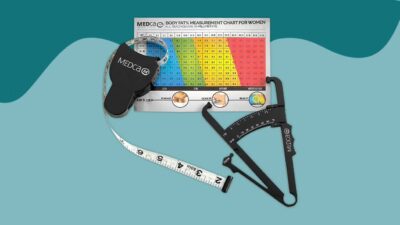When is a person considered obese?
Obesity is the abnormal or excessive accumulation of fat in the body.
It can be diagnosed using the Body Mass Index (BMI).
Body Mass Index (BMI)
BMI = body weight (kg) / height (m)²
This measure is based on weight and height. A person is defined as obese if their BMI is 30 or higher.
Obesity can also be diagnosed by measuring waist and hip circumference:
- For men, normal waist circumference is between 94 cm and 120 cm.
- For women, normal waist circumference is between 80 cm and 88 cm.
When waist circumference exceeds the normal range, it is diagnosed as first-degree obesity.
If the waist circumference exceeds 120 cm in men and 88 cm in women, it is diagnosed as second-degree obesity.
Major risk factors for obesity include:
- Unhealthy eating habits
- Consuming a high amount of carbohydrates daily
- Consuming a high amount of oils daily
- Emotional eating
- Eating fast food
- Not drinking enough water daily
- Low physical activity during the day
- Certain medications
- Pregnancy and childbirth
- Psychological issues
- Heredity
Proper treatment methods:
- Healthy and appropriate nutrition
- Lifestyle changes
- Increasing physical activity during the day




